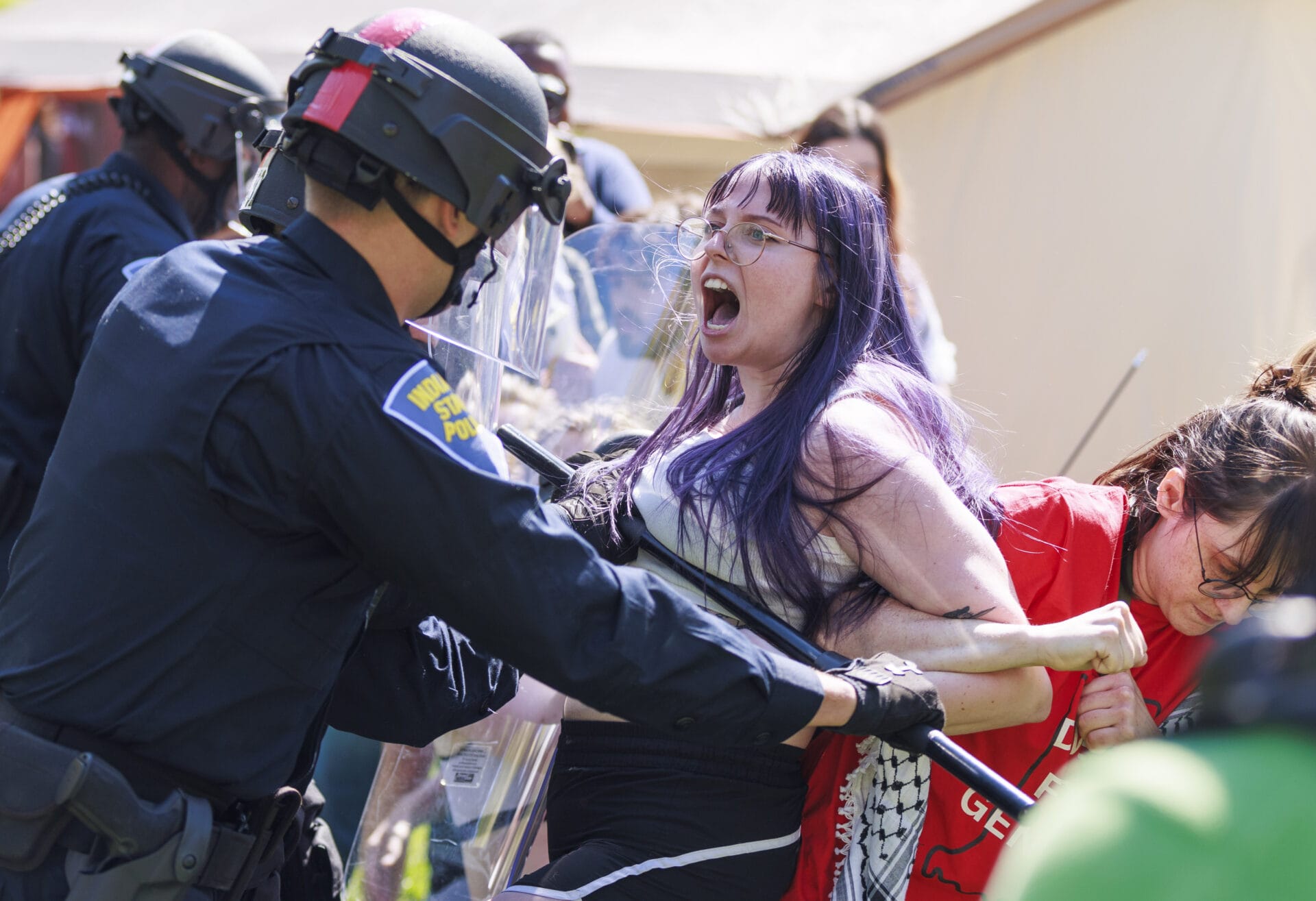IU releases independent review findings on Dunn Meadow protests
BLOOMINGTON, Ind. (WISH) — Indiana University released the findings of an independent review of the pro-Palestinian protests on Dunn Meadow in April.
After Hamas attacked Israel on October 7, 2024, protests broke out on college campuses across the country. In April of 2024, protests began on the campus of IU Bloomington. Protests of the conflict in Gaza disrupted campus tours, interfered with campus events and guest speakers, and protested in portions of campus buildings.
In the spring of 2024 across the country, pro-Palestinian students established encampments on university property at hundreds of institutions, ultimately leading to more than 3,000 arrests.
On April 24th, IU leadership learned a group not affiliated with the university planned an encampment on Dunn Meadow, a part of campus historically tied to protests and other expressive activities.
IU leadership determined the policy surrounding encampments at Dunn Meadow were outdated and unclear and changed the policy choosing to prevent the encampment, instead of taking it down after the fact.
Campus police and leadership distributed fliers explaining the new policy, protesters countered with the old policy, which was still on the university’s website.
This led to several days of conflict between protesters and the IUPD. Eventually the Indiana State Police were called in and 57 protesters were arrested.
The findings of the independent study found that the IUPD lacked the training and resources to remove an encampment like the one on Dunn Meadow, and that the policy change was unclear.
The study completed an investigation of the incidents and gave the school the following findings:
- IU’s leadership balanced free speech, campus safety, and regular university
operations amidst a challenging and rapidly evolving situation. - IU leadership’s decision to change the Dunn Meadow policy was permissible
under university policies and applicable legal standards, including the First
Amendment; however, doing so the night before the planned encampment
caused a number of unintended negative consequences. - IU has a decades-long history of inconsistently enforcing its policies, which
has caused confusion and frustration and makes governance difficult. - IU administrators repeatedly asked the protesters to remove the
encampment structures and to continue the protest without them, but some
protesters refused, and ultimately, using ISP’s assistance was the safest
option available to remove the encampment. - IUPD is a critical university-wide resource, but their understaffing causes a
myriad of negative effects.
The study issued the following recommendations:
Recommendation 1: IU should approve a new expressive activity policy.
Recommendation 2: To establish clearer and more consistent policies, the IU President should direct a review for gaps or inconsistences between university-wide and campus-specific policies and make recommendations to the Board of Trustees on necessary changes.
Recommendation 3: IU should implement adequate training and communication about its policies and appropriate audit procedures to ensure the consistent application of policies.
Recommendation 4: IU should establish a plan for implementing any new policy related to expressive activity.
Recommendation 4.1: IU should clearly communicate this plan to relevant stakeholders and set expectations regarding ISP’s involvement.
Recommendation 4.2: IU should impose predictable and consistent
conduct consequences for violating any new policy.
Recommendation 5: IU should increase funding to IUPD in order to hire and retain more officers and bolster existing training and technological capacity.
Recommendation 6: IU should consider utilizing campus-wide communications to alert the IU community of encampments or other large scale or disruptive protests.
Recommendation 7: IU should consider adopting a policy of not issuing official statements about public matters that do not directly affect the University’s core functions.
Recommendation 8: IU should improve communications involving critical constituencies on campus.
The complete report can be read below.



